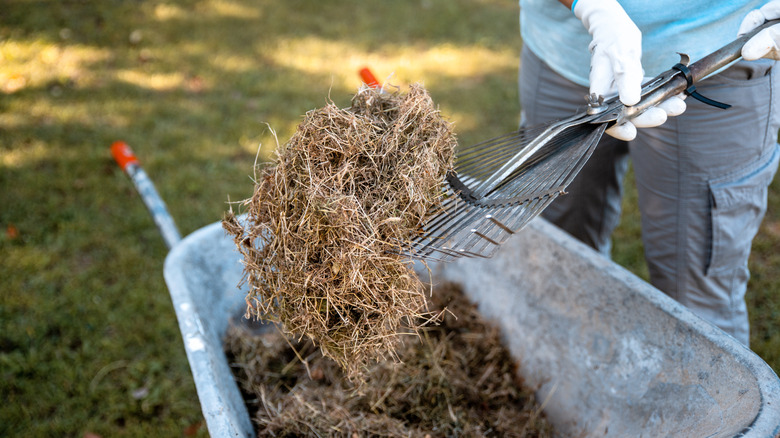Maintaining a garden can be a rewarding hobby that quite literally provides fruits for your labors. While sunlight, fertilization, and watering are all key routines for nourishing your growing crops, providing additional support for them like weed control and insulation is also important. Mulching around the base of your plants, particularly pepper plants, is a great way to help retain moisture in the soil, reducing the need for frequent watering and protecting them during dry spells and hot weather. Moreover, mulching helps to control weeds from growing around your crops by blocking sunlight from reaching the weed seeds in the soil, reducing competition for sunlight, water, and other important resources. By using organic mulch, such as grass clippings from your garden, you can also provide your growing pepper plants with nutrients, helping to improve soil structure, fertility, and overall health.
When choosing a gardening mulch, you should consider organic options like grass clippings as they offer a variety of advantages that typical plastic or wood mulches cannot. Grass clippings, readily available from your own lawn mowing, are excellent for pepper plants because they release nitrogen and other essential nutrients into the soil as they decompose. This nitrogen blast can help to promote healthy growth and enhance the fruit production on your plants. Grass clippings can also be easily replenished throughout the season as they decompose while inorganic options, like those made of rubber or plastic, may release harmful additives or toxins into the soil that will not help your plants thrive.
How and when to apply mulch
Mulch is the best! So many benefits. Use grass clippings in your garden to take advantage of free mulch. Tip! avoid using grass clippings with lots of seeds, so clippings from a regularly mowed lawn is best. #gardeningtips #gardeningadvice #gardenersoftiktok #gardensoftiktok #permaculture
♬ original sound – Sunshine Farm
Applying mulch around your pepper plants is a great way to help them thrive throughout the growing season. Knowing when and how to mulch is important to ensure that your plants flourish and benefit from the organic materials added to your garden. Utah State University recommends waiting to mulch around pepper plants until the soil warms to 75 degrees Fahrenheit. Peppers do not fare well in the cold anyway, so this timing should align with transplanting seedlings or when your directly sown seeds are beginning to emerge. Waiting to mulch until this point will help prevent trapping cold air in the soil around your plants.
When mulching around your plants, first remove any weeds or debris from the area to keep it free from any competing vegetation. Then spread a 1- to 2-inch layer of dry grass clippings around the base of your plant, leaving some room between the clippings and the stem of the plant. The spacing here is important as the decomposing grass could cause the stems to rot if they touch. It’s crucial to use dry grass clippings as wet ones can compact the soil and prevent oxygen from reaching the roots. Throughout the growing season, periodically check the mulch layer to make sure that it’s intact, and feel free to replenish as needed. Organic mulches like grass clippings will decompose over time, so freshening it up will continue to cycle nutrients into the soil for your growing peppers.
Cautions for using mulch

While using mulch in your garden offers a variety of benefits to fertilizing your pepper plants, there are some points to keep in mind when doing so to be sure that your efforts help your plants flourish rather than hinder their success. When mulching, it’s important not to overdo it by piling a layer that is too thick on top of the soil surrounding your plants. Excessive mulch can lead to issues like reduced air circulation, too much water retention, and the development of fungal diseases. For organic mulches like grass clippings, never apply more than 2 inches in height at a time in order to avoid these outcomes for your plants.
Another thing to keep in mind is that mulch has the potential to become a home to pests and rodents. Organic mulches like grass clippings attract small animals and insects as they can provide shelter and a source of food. Keep an eye on your mulch throughout the season and monitor it for any infestations of little friends before they are able to wreak havoc on your garden. If necessary, you can replace the mulch with new, dry grass clippings, or apply an organic pesticide to deter insects and rodents from foraging around your peppers. Nevertheless, using an organic mulch like your own grass clippings is an eco-friendly and free way to help provide nutrients to your growing pepper plants throughout the season to help them flourish for a bountiful harvest.